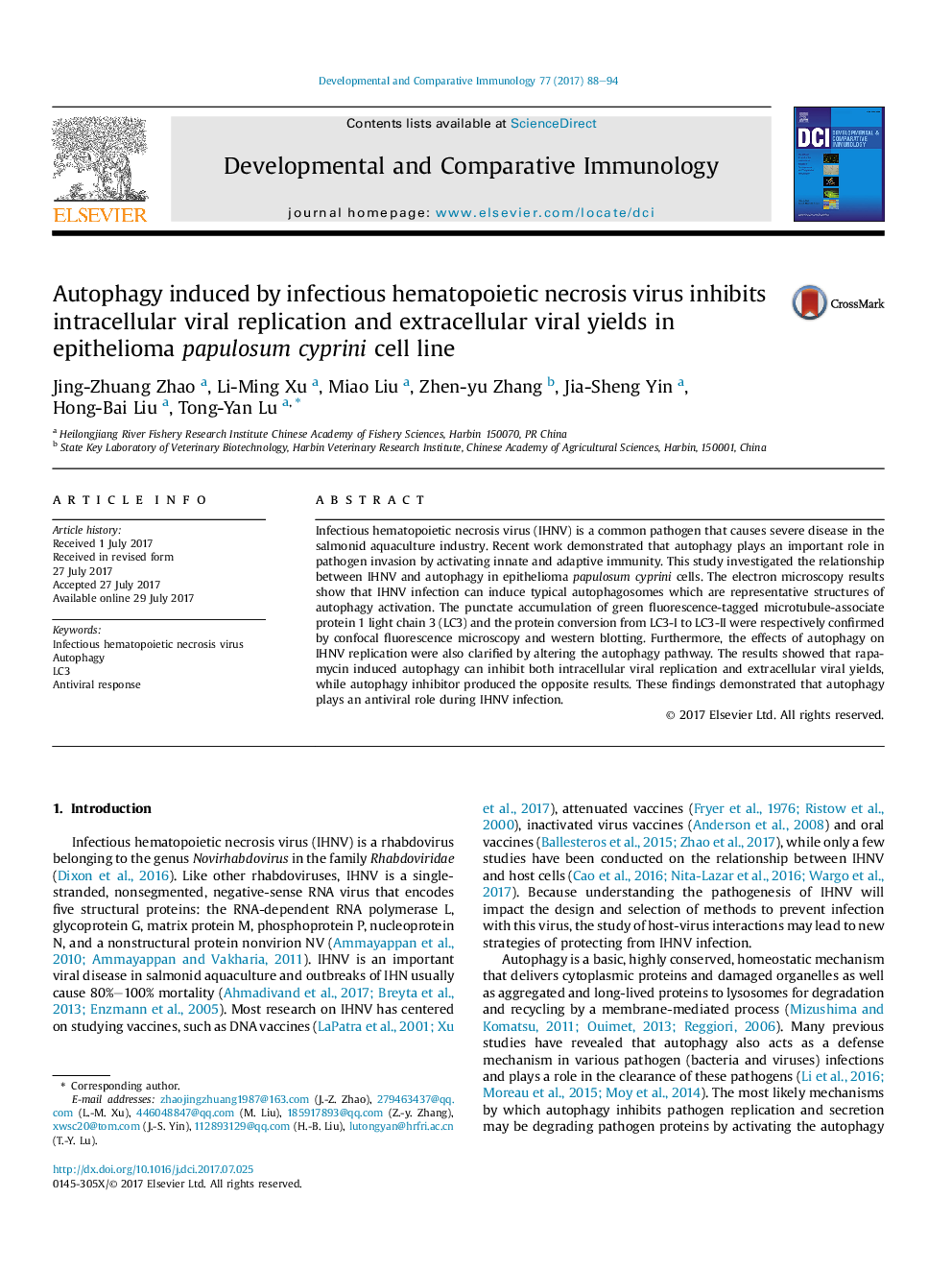| Article ID | Journal | Published Year | Pages | File Type |
|---|---|---|---|---|
| 5540053 | Developmental & Comparative Immunology | 2017 | 7 Pages |
Abstract
Infectious hematopoietic necrosis virus (IHNV) is a common pathogen that causes severe disease in the salmonid aquaculture industry. Recent work demonstrated that autophagy plays an important role in pathogen invasion by activating innate and adaptive immunity. This study investigated the relationship between IHNV and autophagy in epithelioma papulosum cyprini cells. The electron microscopy results show that IHNV infection can induce typical autophagosomes which are representative structures of autophagy activation. The punctate accumulation of green fluorescence-tagged microtubule-associate protein 1 light chain 3 (LC3) and the protein conversion from LC3-I to LC3-II were respectively confirmed by confocal fluorescence microscopy and western blotting. Furthermore, the effects of autophagy on IHNV replication were also clarified by altering the autophagy pathway. The results showed that rapamycin induced autophagy can inhibit both intracellular viral replication and extracellular viral yields, while autophagy inhibitor produced the opposite results. These findings demonstrated that autophagy plays an antiviral role during IHNV infection.
Related Topics
Life Sciences
Biochemistry, Genetics and Molecular Biology
Developmental Biology
Authors
Jing-Zhuang Zhao, Li-Ming Xu, Miao Liu, Zhen-yu Zhang, Jia-Sheng Yin, Hong-Bai Liu, Tong-Yan Lu,
